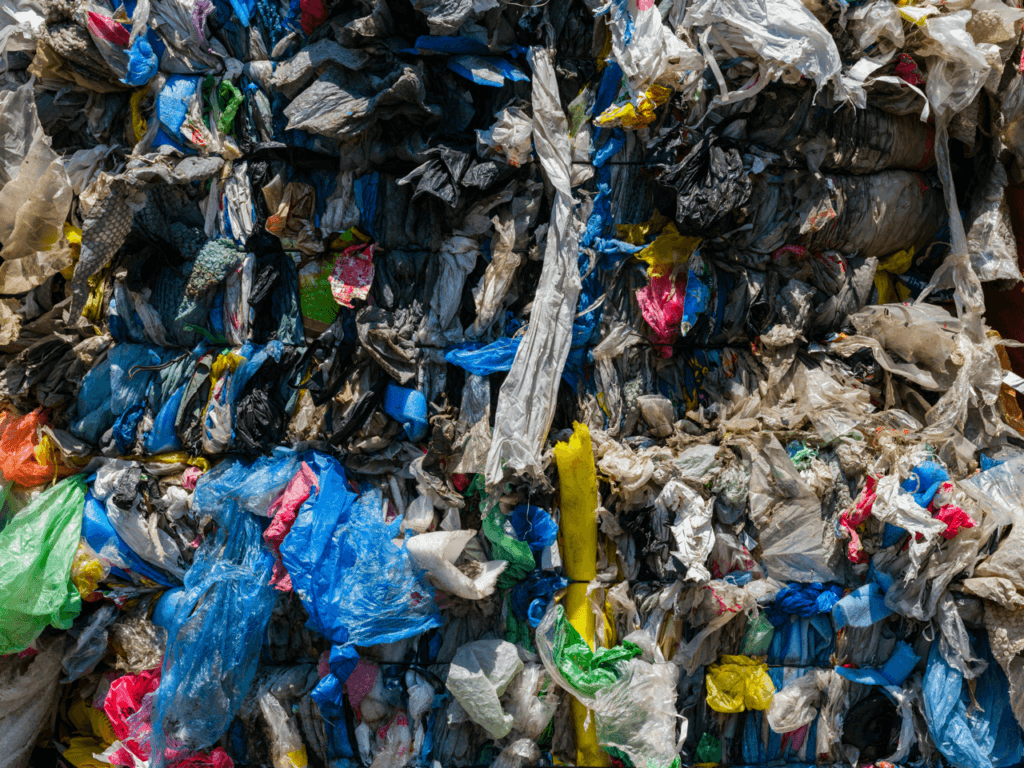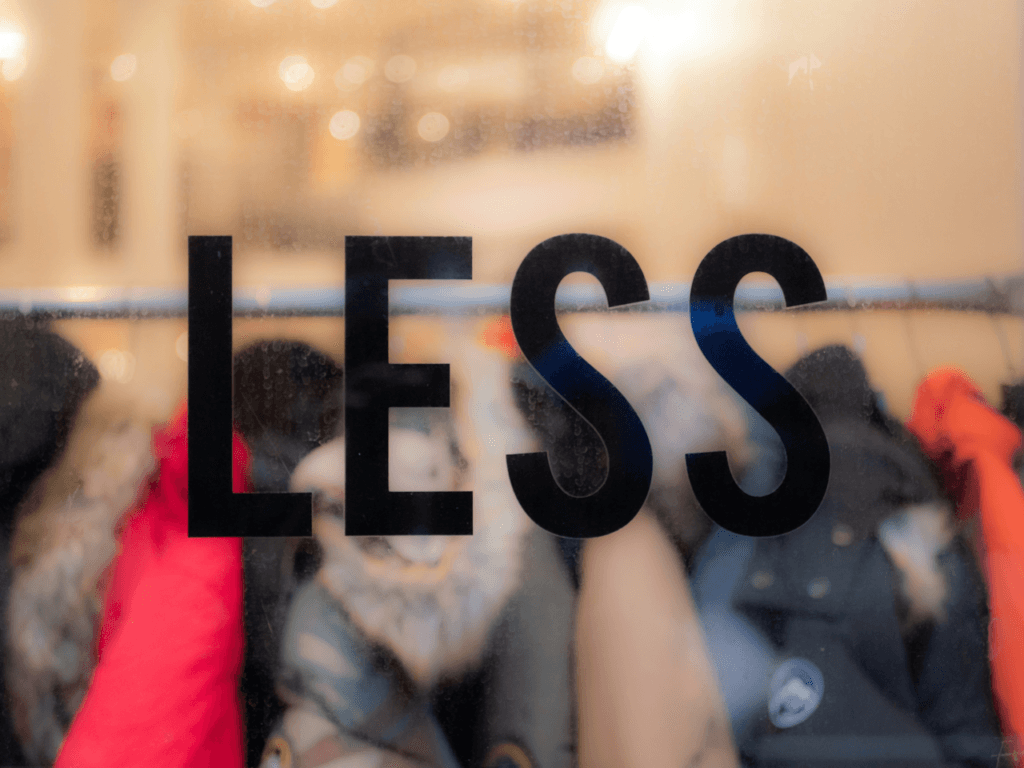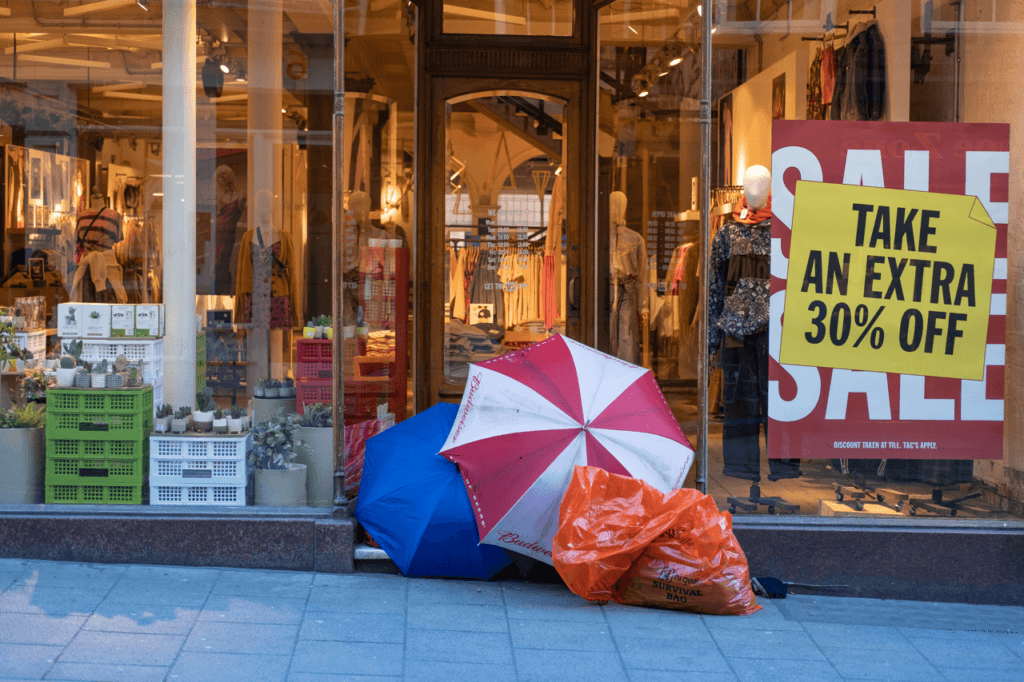We all know Black Friday — that electrifying, deal-chasing extravaganza where shoppers morph into human tornadoes, sweeping through stores with an insatiable appetite for discounts. But while Black Friday might be a dream for our wallets, it’s an absolute nightmare for the planet. Enter the unsung hero of the holiday shopping season: anti-Black Friday campaigns for sustainability. These initiatives are more than just a buzzkill for your shopping spree; they’re a rallying cry for responsible consumption and environmental stewardship.
Anti-Black Friday campaigns, such as Green Friday, are gaining traction as consumers and brands alike recognize the need for a more mindful approach to holiday spending. Instead of succumbing to the allure of slashed prices and doorbuster deals, these campaigns encourage us to take a step back, breathe, and think about the impact of our purchases on the environment. For instance, Green Friday emphasizes sustainability and social responsibility, urging consumers to make eco-friendly choices. And while it might seem like an impossible ask to pass up on those irresistible Black Friday deals, the benefits to our planet are priceless.
The Rise of Anti-Black Friday Campaigns
Ah, Black Friday—the day we celebrate buying things we don’t need at prices we can’t resist. But lately, a counter-movement is shaking things up: anti-Black Friday campaigns focused on sustainability and conscious consumerism.
In recent years, the criticism of Black Friday as the ultimate consumerist frenzy has grown louder. Patagonia was one of the early leaders in the anti-Black Friday campaign, famously telling customers, “Don’t buy this jacket” in a full-page New York Times ad back in 2011. The company continues to champion sustainability, urging customers to repair, reuse, and buy gear built to last. You know, like sensible humans. The ethos is clear: prioritize the planet over profits.
Meanwhile, REI has taken the noble path of shutting down all its stores on Thanksgiving and Black Friday since 2015, encouraging both employees and consumers to #OptOutside. Forget the mall; go hug a tree instead.
The idea behind these anti-Black Friday campaigns isn’t just a fleeting trend. Movements like “Green Friday” push for actions that are kinder to the earth, advocating for less rampant consumption and more mindful, sustainable shopping practices. Inspired by initiatives such as “Buy Nothing Day,” which began in Canada in 1992, Green Friday encourages people to shop local, support small businesses, and reduce their carbon footprint. (Oh, and it might save you from buyer’s remorse.)
This trend isn’t limited to a few gallant outliers. Various brands across the globe are embracing anti-Black Friday sentiments. For instance, the sustainable accessories and footwear brand Allbirds has adopted a “Break Tradition, Not the Planet” approach, raising prices instead of slashing them on Black Friday. The extra revenue goes to Fridays For Future, a climate movement led by youth activists.
The cosmetics brand Deciem, known for The Ordinary, even shuts down its stores and e-commerce on Black Friday, instead offering a month-long “Knowvember” with 23% off to promote thoughtful purchasing over impulsive buys.
Brands like Fjällräven and Rituals are shifting the perspective by promoting longevity and refills, respectively. Fjällräven pitches Black Friday as “Long-Term-Investment Friday” because, let’s be honest, no one needs a 50% off sellout item that will fall apart before you can say “Cyber Monday.”
Environmental concerns also play a big part in the narrative. Amazon’s whopping carbon footprint serves as a haunted reminder of the environmental impact of one-click convenience. According to Bustle, eco-conscious consumers are increasingly considering the planet in their purchasing habits, turning away from fast fashion and excessive packaging. Brands like Scrummi and Public Fibre are leading this shift by calling out Black Friday as “bullsh**t” and urging consumers to seek sustainable alternatives.
The anti-Black Friday movement is more than just a marketing gimmick. It’s a call to action, prompting us to rethink our shopping habits. A sustainable shift could have far-reaching impacts on how we celebrate the holiday season and beyond. So next year, rather than diving into the Black Friday chaos, why not take a leaf out of REI’s book and explore the great outdoors? Or buy something you actually need—preferably something that won’t implode in a landfill by New Year’s.
Motivations Behind Anti-Black Friday Movements

The anti-Black Friday movement didn’t arise from some sudden collective realization that smashing through shop doors at dawn might not be humanity’s peak. Rather, it’s rooted deeply in the intertwined concerns of environmental sustainability, ethical consumption, and social responsibility. Essentially, it’s the antithesis of “shop ’til you drop” culture.
First, let’s talk about the elephants in the room, namely climate change and waste reduction. Black Friday, with its unrestrained consumerism, quite literally leaves a trail of pollution in its wake. In the UK alone, Black Friday’s carbon footprint was evaluated at a staggering 430,000 metric tonnes. That’s the equivalent of 435 round trips from London to New York. Fun fact: A Green Alliance report highlighted that 80% of products bought on Black Friday end up discarded shortly after purchase. So, it’s not just our bank accounts draining; it’s the planet’s resources too.
Environmental crusaders like Patagonia made waves in 2011 with their ad, “Don’t Buy This Jacket,” serving both as a stark appeal for reduced consumption and as a brilliant marketing move. Their ongoing “Buy Less, Demand More” initiative further cements their commitment to sustainability by promoting refurbished alternatives through their Worn Wear program.
Similarly, other brands have also leapt onto the anti-Black Friday bandwagon. Allbirds, for instance, challenges conventional price-slashing conventions by increasing prices by £1 and matching it with a donation to Fridays For Future, emphasizing environmental sustainability over consumer indulgence.
Ethical concerns are core to these movements. Companies like GiffGaff urge shoppers to ‘Check Your Drawers,’ promoting a circular economy for mobile devices. Deciem goes further, shuttering its operations for the day to remind consumers about the climate crisis, tagging the month as ‘Knowvember’.
Beyond environment and ethics, the social implications of unchecked consumerism are becoming impossible to ignore. Hyperconsumption isn’t just about the products; it’s about the exploitation and labor practices inherent in their production. By championing slow fashion, ethical sourcing, and fair labor practices, brands part of the anti-Black Friday movement are making a potent statement: We can have nice things without the social cost.
In conclusion, the motivations behind anti-Black Friday campaigns for sustainability revolve around promoting a mindful culture that respects our planet and its inhabitants. As more brands and consumers join this sustainable movement, the future of shopping may well be less about hoarding and more about harmony. Remember, folks, less is more. Especially when it means less trash to clear up afterward.
Strategies Implemented by Anti-Black Friday Campaigns

One popular strategy that has emerged to counteract the frenzied consumption of Black Friday is the promotion of initiatives like ‘Buy Nothing Day.’ Launched as a protest against consumerism, ‘Buy Nothing Day’ encourages people to take a step back and consider the environmental and social impacts of their shopping habits. By advocating for a full day of no shopping, this movement raises awareness about the effects of excessive consumption and promotes a more sustainable outlook on shopping.
Brands have also begun to push for eco-friendly products as part of their anti-Black Friday campaigns. Companies like Patagonia have famously closed their stores on Black Friday and instead promoted more sustainable practices. By focusing on durable, long-lasting products and avoiding the “fast fashion” trap, they align their sales strategy with sustainability principles. This move not only helps reduce the environmental footprint but also encourages responsible consumer behavior.
Educational campaigns are another key strategy employed by brands to promote sustainable shopping. These campaigns often focus on how consumers can make more informed choices. For instance, providing information about the life cycle of products, the benefits of recycled materials, and the importance of supporting ethical labor practices can help steer consumers toward more sustainable options.
Promoting second-hand shopping and repairs is a practical approach to sustainability that brands are now incorporating into their anti-Black Friday narratives. Encouraging customers to repair items rather than discard them supports a circular economy and can significantly reduce waste. Retailers may also highlight the benefits of thrift store finds, spotlighting unique and quality items that offer benefits for both the wallet and the planet.
Local purchasing and seasonality are also frequently championed in these campaigns. By buying locally-produced goods, consumers cut down on the carbon footprint associated with transportation. Additionally, local purchases tend to support smaller businesses and the local economy. Shopping seasonally ensures that the goods have a lower environmental impact since they require less energy for cultivation and storage.
Lastly, several brands are opting to donate a portion of their sales to environmental causes during the Black Friday period. This turns a typically consumption-heavy time into a win for sustainability. For instance, apparel companies might donate to tree-planting initiatives or ocean conservation projects, thereby turning customer purchases into actionable environmental savings. This not only fosters a positive brand image but also involves consumers in the sustainability mission directly.
In summary, by utilizing tactics such as ‘Buy Nothing Day’, pushing for eco-friendly and durable products, running educational campaigns, promoting second-hand options, and contributing to environmental causes, brands are successfully creating anti-Black Friday campaigns for sustainability that resonate with conscious consumers.
Case Studies of Successful Anti-Black Friday Campaigns

Let’s dive into some brilliant anti-Black Friday campaigns that have not only turned heads but also set a gold standard for sustainability.
Patagonia: “Buy Less, Demand More”
In 2011, Patagonia set the anti-Black Friday movement in motion with their bold New York Times ad proclaiming, “Don’t Buy This Jacket.” This campaign was more than just catchy—it was a call to arms against hyper-consumerism. Fast forward to their “Buy Less, Demand More” initiative, and you’ll find a company deeply committed to sustainability. Patagonia’s “Worn Wear” program encourages customers to opt for refurbished gear, offering a plethora of used alternatives at reduced prices. They’re essentially saying, “Hey, your old jacket still has some life left in it!” Check out more on their impactful strategies on The Drum.
Allbirds: “Break Tradition, Not the Planet”
Allbirds takes Black Friday and flips it on its head, opting for a “Green Friday” instead. Their message? “Break tradition, not the planet.” Instead of cutting prices, Allbirds actually raised them by £1, with every additional pound matched and donated to Fridays For Future, Greta Thunberg’s climate activism movement. Essentially, they turned the day into a cause for environmental advocacy, mobilizing their customer base to think greener about their purchases. Intrigued? Read more on their innovative approach here.
Deciem: “Bye Bye Black Friday, Hello Knowvember”
Deciem, the parent company of The Ordinary, has waved goodbye to Black Friday for two consecutive years, choosing instead to celebrate “Knowvember.” All purchases are 23% off for the entire month, making sure people have time to think about what they really need rather than rushing to buy in a single day. This campaign not only defies the high-pressure tactics of Black Friday but also brings attention to the climate crisis. Nicola Kilner, co-founder and chief executive of Deciem, puts it simply: “If you wouldn’t pay full price for it, it’s probably not something that you truly need.” More about their climate-conscious initiatives can be found here.
Mud Jeans: Going Vintage
Dutch sustainable denim brand, Mud Jeans, took a leaf out of Patagonia’s book by shutting down their online store on Black Friday. Instead of enticing customers to buy new, they directed them to their vintage collection, promoting the purchase of pre-loved jeans. This initiative not only offers jeans at a significantly lower price but also highlights the environmental benefits of buying second-hand. For Mud Jeans, it’s not just about sales—it’s about making a “conscious choice,” a quality-first approach over the frenzy of consumerism. Learn more about their vintage take on Black Friday here.
Freitag: SWAP Instead of Shop
Swiss accessories brand Freitag has taken their anti-Black Friday campaign to a whole new level by closing their online store and launching SWAP (Shopping Without Any Payment). Instead of getting sucked into the whirlpool of Black Friday shopping, customers can exchange their old Freitag bags for different styles. They’re reinforcing the idea that you don’t need new stuff when you can find joy in what you already have. For more insights, visit The Drum.
These brands are not just standing up to Black Friday’s consumerism frenzy; they’re actively promoting a sustainable and thoughtful approach towards shopping. This shift not only enhances their brand value but also addresses the ever-pressing climate crisis head-on.
Broader Implications for Consumer Culture and Environmental Conservation

The rise of anti-Black Friday campaigns is more than just a corporate fad; it’s a shift towards reshaping consumer culture and fostering environmental conservation. As brands like Patagonia, Allbirds, and others advocate for anti-Black Friday campaigns for sustainability, they’re nudging consumers to rethink their shopping habits and embrace a more mindful approach to consumption.
For instance, Patagonia’s bold “Don’t Buy This Jacket” ad encouraged consumers to reflect on their real needs rather than getting swept away by the frenzy of discounts. This effort doesn’t just challenge hyper-consumerism; it actively promotes a circular economy. Patagonia’s “Buy Less, Demand More” campaign takes this a step further by linking shoppers to refurbished alternatives, directly tying purchasing decisions to sustainability.
Similarly, the Allbirds’ “Break tradition, not the planet” campaign flipped the script by raising prices on Black Friday and pledging increased commitments to climate initiatives. This not only dissuades unnecessary purchases but also emphasizes the value of contributions towards environmental causes.
These impactful campaigns are steering consumer behavior in a direction that prioritizes quality, necessity, and sustainability over quantity and impulse buying. Brands are engaging in a kind of reverse psychology marketing, making headlines not for the craziest discounts, but for urging customers to buy less, reuse more, and invest in durable, eco-friendly products.
In essence, these movements are fostering a consumer culture that values sustainability as much as convenience. The success of GiffGaff’s “Check Your Drawers” campaign illustrates another facet of this evolution. By encouraging users to repurpose old devices instead of buying new ones, GiffGaff promotes a circular economy, implicitly reducing electronic waste and conserving resources.
Furthermore, these initiatives inspire a broader societal conversation about consumption. As covered by IMD, opting out of Black Friday challenges the very foundation of consumerism. It propels a narrative where mindful consumption becomes mainstream, subsequently paving the way for more eco-conscious behaviors in varied industries.
The long-term environmental benefits are substantial. Fewer new products mean less production waste, reduced carbon footprints, and less pressure on landfills. These campaigns collectively aim to lessen the annual waste spike seen every holiday season, directing society towards mindful consumption that prioritizes the planet’s health.
In essence, anti-Black Friday campaigns for sustainability are more than just marketing stunts; they serve as beacons for a healthier planet and a more responsible consumer culture.
Practical Tips for Sustainable Holiday Shopping
Creating a more sustainable holiday season might sound like an uphill battle, but with some practical tips, you can turn it into a seamless transition. Here’s how to make your holiday shopping as eco-friendly as your best intentions.
Research and Buy from Environmentally-Friendly Brands
First things first, prioritize brands committed to sustainability. Whether it’s clothing made from recycled materials or goods packaged without plastic, focusing on green brands can significantly reduce your environmental footprint. It might take a little more time to find these gems, but the impact is well worth it. Start by exploring brands with national recycling programs, as suggested by TerraCycle.
Embrace Minimalism
The mantra “less is more” applies perfectly to sustainable holiday shopping. Instead of going for quantity, aim for quality. Would you rather use your money to buy a dozen knick-knacks that’ll end up in the trash, or one high-quality, memorable gift? A massage voucher, for example, could offer more long-term value and less waste than a basket of goodies.
Shop Locally
Avoid the big-box stores and explore local, independent shops. You’ll find unique, handcrafted items and support your community at the same time. Plus, local shopping often means less shipping waste. Challenge yourself to complete your holiday purchase at independent businesses, especially during events like Small Business Saturday.
Avoid Impulsive Purchases
We’ve all been there: seduced by flashy sales, we end up buying things on impulse. This leads to waste and probably less satisfaction for your gifts. Plan your shopping list in advance and stick to it. Be strategic and thoughtful instead of letting the frenzy of sales dictate your purchases.
Opt for Secondhand and DIY Gifts
If you can’t find that perfect gift sustainably, consider the secondhand market. Websites like Poshmark or eBay can help you find pre-loved items that are as good as new. Additionally, DIY gifts can bring a unique, personal touch. Are you skilled in painting, baking, or graphic design? Use your talents to create one-of-a-kind presents.
Give Experiences, Not Stuff
Why not gift an experience instead of a physical item? Concert tickets, cooking classes, or even a national park pass can create lasting memories without the clutter. An added bonus: no wasteful packaging to dispose of afterward.
Adopting these practical tips not only supports sustainable holiday shopping but also paves the way for a more mindful and meaningful gifting season.
Conclusion: Rethink Black Friday for a Sustainable Future
As we wrap up our deep dive into anti-Black Friday campaigns, it’s clear that a paradigm shift in our shopping habits can lead to monumental changes for our planet. By supporting initiatives that champion sustainability and mindful consumption, every purchase you make can contribute to a healthier environment and a more equitable society.
But let’s be real for a moment—changing lifelong shopping habits isn’t exactly a walk in the park. It demands a conscious effort, unwavering commitment, and sometimes, a steely resolve not to cave into the temptation of the flash deals. Yet, choosing sustainability over consumerism offers unparalleled long-term rewards, both for you and the environment.
Join the Conversation!
What do you think? Are you ready to part ways with the chaos of Black Friday and embrace a more sustainable approach? Which anti-Black Friday campaign strategy resonates most with you? Have you implemented any eco-friendly shopping habits? Share your thoughts, experiences, and even tips with us—because let’s face it, navigating this journey is easier when we do it together.
Interested in diving deeper into sustainable consumer practices? Subscribe to our newsletter for more insights and join a community of like-minded individuals striving for a better, greener future.










